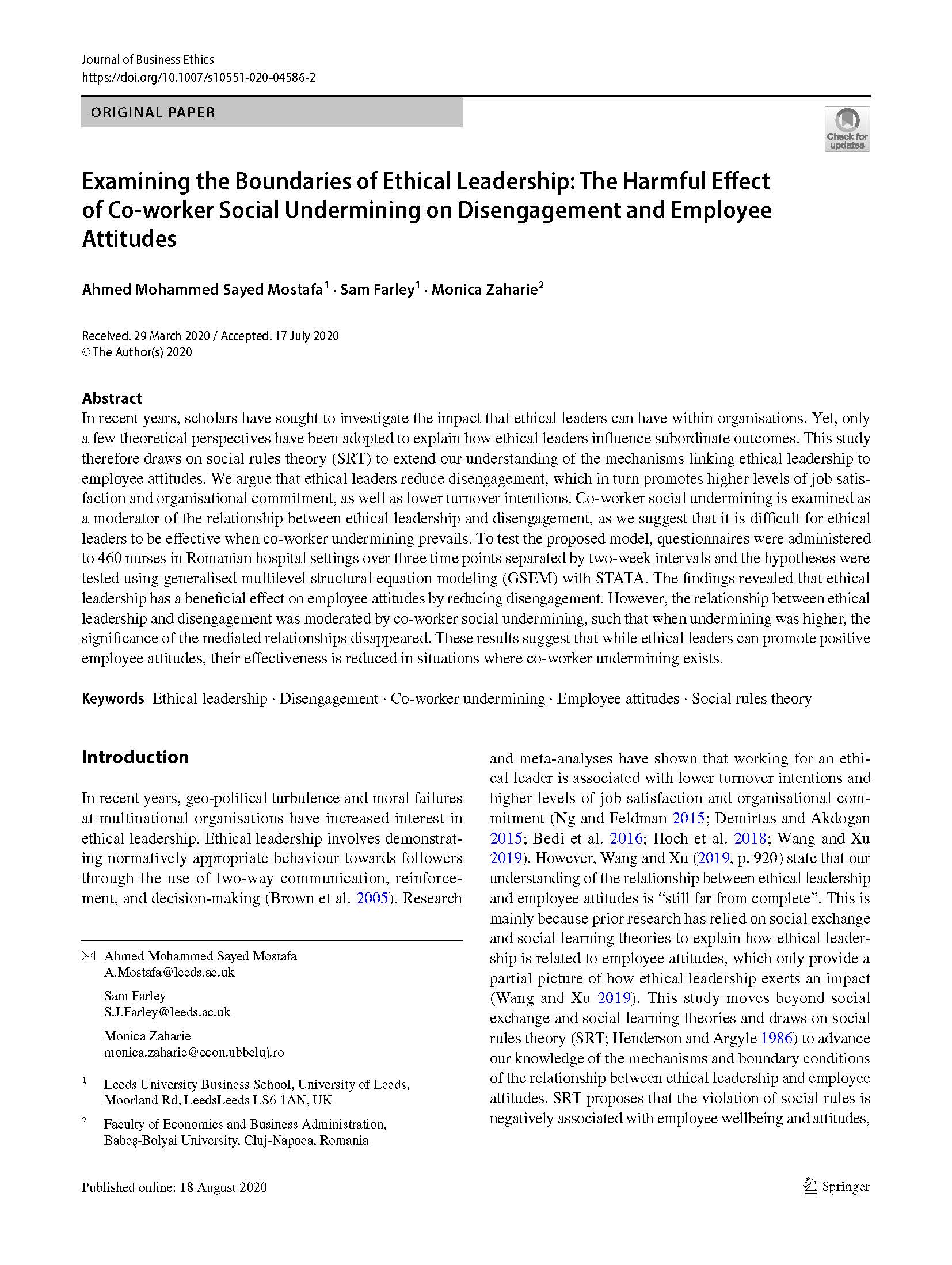|
|
|
Mostafa, A.M.S., Farley, S. & Zaharie, M.A. (2021) Journal of Business Ethics [Core Economics, Q2]
Autor:
Ovidiu Ioan Moisescu
Publicat:
03 Aprilie 2021
Mostafa, A.M.S., Farley, S. & Zaharie, M.A. (2021) Examining the Boundaries of Ethical Leadership: The Harmful Effect of Co-worker Social Undermining on Disengagement and Employee Attitudes. Journal of Business Ethics, 174, 355-368.
DOI: https://doi.org/10.1007/s10551-020-04586-2
✓ Publisher: Springer
✓ Web of Science Core Collection: Science Citation Index Expanded Social Sciences Citation Index
✓ Categories: Bussiness; Ethics
✓ Article Influence Score (AIS): 1.578 (2021) / Q2 in Business, Q1 in Ethics.
Abstract: In recent years, scholars have sought to investigate the impact that ethical leaders can have within organisations. Yet, only a few theoretical perspectives have been adopted to explain how ethical leaders influence subordinate outcomes. This study therefore draws on social rules theory (SRT) to extend our understanding of the mechanisms linking ethical leadership to employee attitudes. We argue that ethical leaders reduce disengagement, which in turn promotes higher levels of job satisfaction and organisational commitment, as well as lower turnover intentions. Co-worker social undermining is examined as a moderator of the relationship between ethical leadership and disengagement, as we suggest that it is difficult for ethical leaders to be effective when co-worker undermining prevails. To test the proposed model, questionnaires were administered to 460 nurses in Romanian hospital settings over three time points separated by two-week intervals and the hypotheses were tested using generalised multilevel structural equation modeling (GSEM) with STATA. The findings revealed that ethical leadership has a beneficial effect on employee attitudes by reducing disengagement. However, the relationship between ethical leadership and disengagement was moderated by co-worker social undermining, such that when undermining was higher, the significance of the mediated relationships disappeared. These results suggest that while ethical leaders can promote positive employee attitudes, their effectiveness is reduced in situations where co-worker undermining exists.

inapoi la stiri  vezi evenimentele
vezi evenimentele  home
home 
|